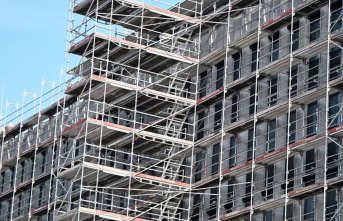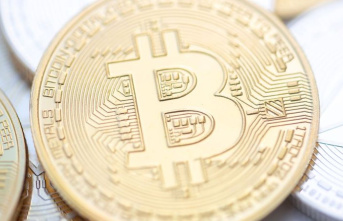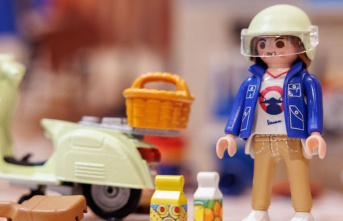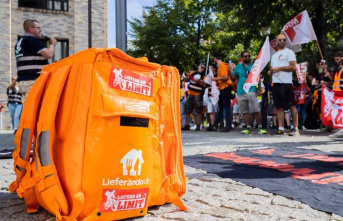In Morocco, as elsewhere, the world of work is upset by the pandemic of the Covid-19. The continued confinement, social distancing and business continuity in the "critical areas" are changing the practice of several professions. The work of the american sociologist Everett Hughes invite us to understand the effects of the crisis on the professions by the analysis of social interactions at work and subjective representations that are associated with it. In his analysis of the division of moral labour, it shows that there is, within each business or function, activities, rewarding, and prestigious, and others considered dirty and degrading. These are called "dirty work" (dirty work). Those who perform this type of task adopt strategies of concealment in order to maintain a positive self-image.
from this angle, the world of work in Morocco is structured around three groups of professions where, in times of crisis, by scenes social singular and new tasks considered " dirty work."
Read also The Morocco extends its containment and prepares its economic recovery
The intellectual work virtualized : manage the "Zoom fatigue"
With the announcement of the containment, a substantial number of managers and higher intellectual occupations has adopted telework without being prepared. If these professionals carry out their activities in comfort safe in their homes – bearing in the background of the virtual meetings, the signs of the prestige, professional and social (libraries, diplomas, etc) – they experience individually and collectively a social scene virtualized that blurs the rituals of interaction.
The neo-teleworkers have discovered the interactions, the repeated and prolonged on the collaborative platforms (Zoom, Skype, Webex, MS Teams, etc). The days I spent on the phone or video conferencing are described as "challenging" and cognitively very demanding. Everyone must learn to dissociate his body, isolated in a space that is comfortable and protective, his thoughts, immersed in a virtual space to work competitive and politicized where it is necessary to negotiate, convince and impose.
The artifacts equipment (phones, screens, headphones) and digital (platforms) as well as the absence of body language transform the sociability of the meetings, as we described in this framework : "The discussions in private, the glances, the débriefes small group left the room, all of this does not exist. The meeting ends, we click on leave the meeting, and it is finished. "
The interactions in a virtual meeting favor the effectiveness of the message and decision-making, to the detriment of the maintenance of links between the collaborators. Places parallel of sociability are born via the messages "WhatsApp" that employees share in pairs or in closed groups. This sociability parallel increases the mental workload and the pressure of cognitive during the virtual meetings.
this "Zoom fatigue" in addition to expectations of hyper-connectivity and hyperdisponibilité, both on the part of hierarchical superiors than from colleagues. In a culture where orality, and the interpersonal links are direct hold an important place, these expectations produce paradoxical effects. In a part of the " working virtual ", they reinforce the behavior of "employee" ideal : connected, available and responsive. In other workers, they produce new stress, as suggested by this executive : "people expect you to be all the time on your PC and ask you to answer at the moment. At the office, when someone wants some info, he goes to see you and it was all on. There, he wants the same thing. "
The frameworks thus discover new dimensions of "sales" of their activity, that they are trying to hide by maintaining the facade of codes implied effectiveness at work.
Read also with Morocco in the face of the coronavirus : "You said "confined" ? "
The work by the body located : manage the mental workload and the risk of contagion
For the "workers of the continuity of economic and health" – trades prestigious (doctors, pharmacists, etc) or socially undervalued (nurses, cashiers, factory workers and construction sites, etc), the activity is carried out in a geographical space that is defined and produced contrasting effects.
Héroïsées by policy makers, the media and the public, the professions live with the fear of the contagion, which has become a mental load professional. The tensions are multiplied in factories, for example, to demand additional protections.
workers produce gowns and other protective equipment for ambulance and first responders, in the town of Berrechid, about 42 kilometres south of Casablanca, on 16 April 2020. © Fadel Senna/AFPSur the place of work, each demonstrating new gestures and devotes a substantial portion of his professional time to the prevention of the risk : equip, disinfect the work tool, cleanse the body... The interactions are also transformed by the actions barriers, as described in this pharmacist : "you think about It constantly. I lowered the curtain of the pharmacy. Everything is done through a small window. "
The interaction promoted between the professional and the client becomes distant and narrow. The dirty work of risk management, inviting to the door of the private space, as adds the same pharmacist :
" At home, I have created a sas security at the entrance. Nothing that has been in contact with the exterior do the crosses. I spend half an hour each time to disinfect everything. "The goal is to isolate the healthy interior of the outside soiled.
Read also Health : why the challenge is so great for Africa
The job by mobility : split circulation space
While the word order is the confinement and the limitation of the travels, the work of a whole range of occupations (street vendors, drivers, delivery men, marauders, etc), more or less vulnerable to poverty, is to be mobile between places variably exposed to the risk of contamination. Flow between spaces soiled areas and healthy becomes the heart of activity of these professionals.
In a period of anxiety hygienist, the drivers employed by the " wealthy classes ", usually in continuous interaction with the members of the household are put at a distance, and relegated to a space outside. The "marauders" – workers of waste, generally accepted in the urban landscape, are suspected of passing the virus to trash bin, and so home by home.
For these professionals, the mobility is both the essence and the dirty work of their business. To keep up the facade, they split up their work by redefining their mobility and prohibiting spaces, risky or in which they are no longer accepted.
For many professionals moroccan, the crisis of the Covid-19 product so new mundane tasks. Remains to think adjustments to be sustainable, these "dirty jobs" to manage the déconfinement.
also Read Morocco : this mask that the Covid-19 is expected to carry the economy
* Hicham has featured articles is the director of the Euromed Fez Business School. He is an associate researcher at the Research Institute for European, Mediterranean, and African Studies (RIEMAS) of the Euro-Mediterranean University of Fez – UEMF.






